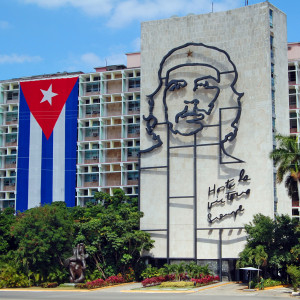Ninety miles from the United States lies the lone outpost of communism in the Western Hemisphere, and the focal point of what may be one of the most misguided foreign policy blunders of the Obama Administration, and that’s saying something. Recent events in Cuba have made it painfully clear that if the President continues to seek closer diplomatic ties with the Castro regime – as the visit of a Cuban delegation to Washington certainly suggests – he will be putting idealism and ideology ahead of geopolitical reality. I say this because President Obama speaks of engaging with the Cuban people – but he’s exclusively engaged with the Cuban government.
Recently, The Associated Press reported that the Cuban government had arrested hundreds of dissidents in one weekend. Dozens of these were members of a group called the “Damas de Blanco” – or “Ladies in White” – an organization that maintains a constant peaceful protest movement against their communist rulers. They were doing nothing more than marching in the streets of Havana after celebrating Mass.
Sadly, this kind of suppression is accepted as par for the course both by Cuban dissidents and outside observers. However, the fact that the government would perpetrate such actions on the eve of talks with Washington shows how seriously they apparently take President Obama’s commitment to bring democracy to their fiefdom.
In addition, Cuba continues to seek closer ties with Russia, particularly with the Russian armed forces. At a time when Western nations – with the United States “leading from behind” – are trying to salvage some semblance of cooperation with an increasingly bellicose Russian government, Cuba’s recent cozying-up to the Russian military appears dubious at best.
Last November, the Russian Defense Ministry announced plans to expand flights by military aircraft into the Caribbean Sea and the Gulf of Mexico. Cuba is situated in an especially strategic position in these waters. It would appear that the Russians are making good on their plans – Defense Minister Sergei Shoygu visited the region himself in early February, meeting personally with Cuban president Raul Castro. The English-language headline of the Kremlin mouthpiece Pravda proudly proclaimed, “Russian armed forces returning to Latin America.” If the Cubans truly wished to conduct negotiations with the U.S. in good faith, why are they reverting to their Cold War practice of inviting the Russian military into America’s backyard?
Another recent development appears to have completely escaped the notice of the Obama Administration. February 24 marked the 19th anniversary of cold-blooded murder of Americans carried out by Cuban fighter pilots over the Straits of Florida. Four U.S. citizens and one resident were at the controls of two small civilian airplanes flying in support of the Brothers to the Rescue organization, watching the open waters between Cuba and Florida to assist refugees fleeing communist oppression.
Nineteen years ago, however, a spy in the group alerted the Castro government to the Brothers’ flight plans. The Castro brothers ordered warplanes scrambled to shoot down unarmed Americans who were trying to help people seeking freedom. Despite an outpouring of grief among Cuban-Americans in Miami’s Little Havana neighborhood, to commemorate the lives lost, President Obama appears to have turned a deaf ear. Adding insult to their injury, the President was in South Florida but couldn’t make it to meet with the families of those killed that fateful day.
President Obama must answer a simple question for all Americans: should the approach to Cuba be unilateral? For the President to hold his promise, he should keep his word and engage with the people of Cuba, help drive openness in access to information, encourage open markets, and help the people choose their leaders.

